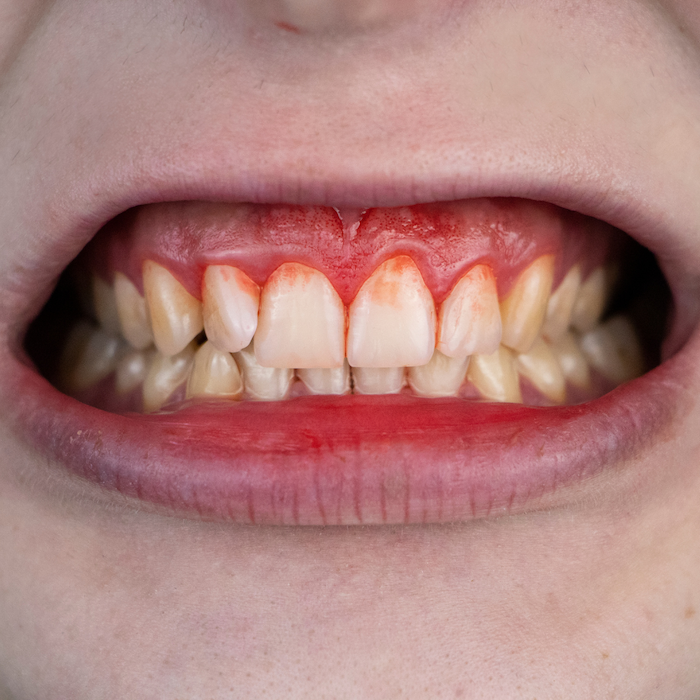Your gums are an important part of your health. Not only do they affect the health of your teeth, but they also play a role in the overall health of your body. In today’s blog post, we’ll cover why the health of your gums is so important and best practices for taking care of them. We’ll also discuss some common problems that can occur with gum health and how to prevent them.
As you probably know, your gums are the soft tissue that surrounds and supports your teeth. They’re made up of collagen, blood vessels, and other connective tissues. And like all other tissues in your body, they need to be healthy in order to function properly.
Why is gum health so important?
There are a number of reasons why gum health is so important.

For one, healthy gums provide a barrier against bacteria and other harmful organisms that can cause disease. When they are healthy, the gums tightly hug the teeth, creating a seal that prevents bacteria from entering the bloodstream. However, when the gums are unhealthy, they can pull away from the teeth, leaving tiny gaps through which bacteria can enter. This can lead to serious infections and diseases within the cardiovascular system, such as heart disease and stroke.
Gums also help to keep your teeth in place by providing support and stability. Without this support, your teeth can become loose and eventually fall out. Additionally, gum disease can lead to bone loss, which can further weaken the support for your teeth.
Additionally, healthy gums promote good oral hygiene habits and help to prevent bad breath.
How to keep gums healthy
There are a few things you can do to keep your gums healthy.
First, brush your teeth twice a day with a soft-bristled toothbrush. Brushing your teeth is one of the simplest things you can do to maintain good health. Not only does it help to keep your teeth clean and prevent cavities, but it also helps to remove plaque and bacteria from your gums. In addition, brushing your teeth stimulates blood flow to the gums, promoting healthy tissue growth. Gum disease is a serious condition that can lead to tooth loss and other health problems, so it’s important to brush your teeth regularly and effectively. The best way to brush your teeth is to use a soft-bristled toothbrush and gentle circular strokes. Be sure to brush all surfaces of your teeth, including the fronts, backs, and tops.
You should also floss daily to remove plaque and bacteria from between your teeth. Flossing helps to remove plaque and bacteria from between teeth and along the gum line, where brushing can’t always reach. This helps to prevent gum disease, along with the many diseases that poor gum health can lead to.
Finally, eat a balanced diet and avoid sugary snacks and drinks. When you eat sugary snacks and drinks, the sugar sticks to your teeth and gums. This can lead to cavities and other problems. The bacteria in your mouth also feed on sugar, and this can cause gum disease. Eating a balanced diet helps to keep your teeth and gums healthy. It also helps your overall health. When you eat healthy foods, you have more energy. You are also less likely to get sick.
How to detect unhealthy gums
If you’re experiencing any problems with your gums, be sure to see your dentist right away. They can determine the cause of the problem and provide you with treatment options. Here are a few tell-tale signs that your gums may be unhealthy:

- Bleeding while brushing or flossing
- Redness or swelling
- Persistent bad breath
- Receding gums
- Pus discharge from around the teeth or gums
- Loose teeth
- Changes in the fit of partial dentures
If you’re experiencing any of these signs, be sure to see your dentist right away. They can help you determine the cause of the problem and provide you with treatment options. Taking care of your gums is an important part of taking care of your overall health. By following these simple tips, you can help keep your gums healthy for years to come!
Best vitamin for gum health
Unsurprisingly, there are certain nutrients that are beneficial to the health of your gums. And unsurprisingly vitamin C is among the best vitamins you can provide your body if you want to have strong, protective gums.
Studies have shown that those with low – not even deficient, just low – levels of vitamin C are more likely to develop gum disease compared to those with optimal levels of the vitamin in their blood. [1, 2, 3]
What’s more is that, in those with gingivitis, vitamin C supplementation has been shown to reduce symptoms like bleeding. [4]
This is due to the fact that vitamin C is a main contributor to collagen production in the body – the protein which holds all of our tissue together. It’s also a significant antioxidant, meaning it protects all cells in the body against damage.
The problem is that it’s hard to know for sure if you’re getting enough vitamin C for your entire body to benefit. After all, it’s involved in a wide range of functions big and small.
Click here to learn how you can be confident that you have healthy levels of vitamin C.





